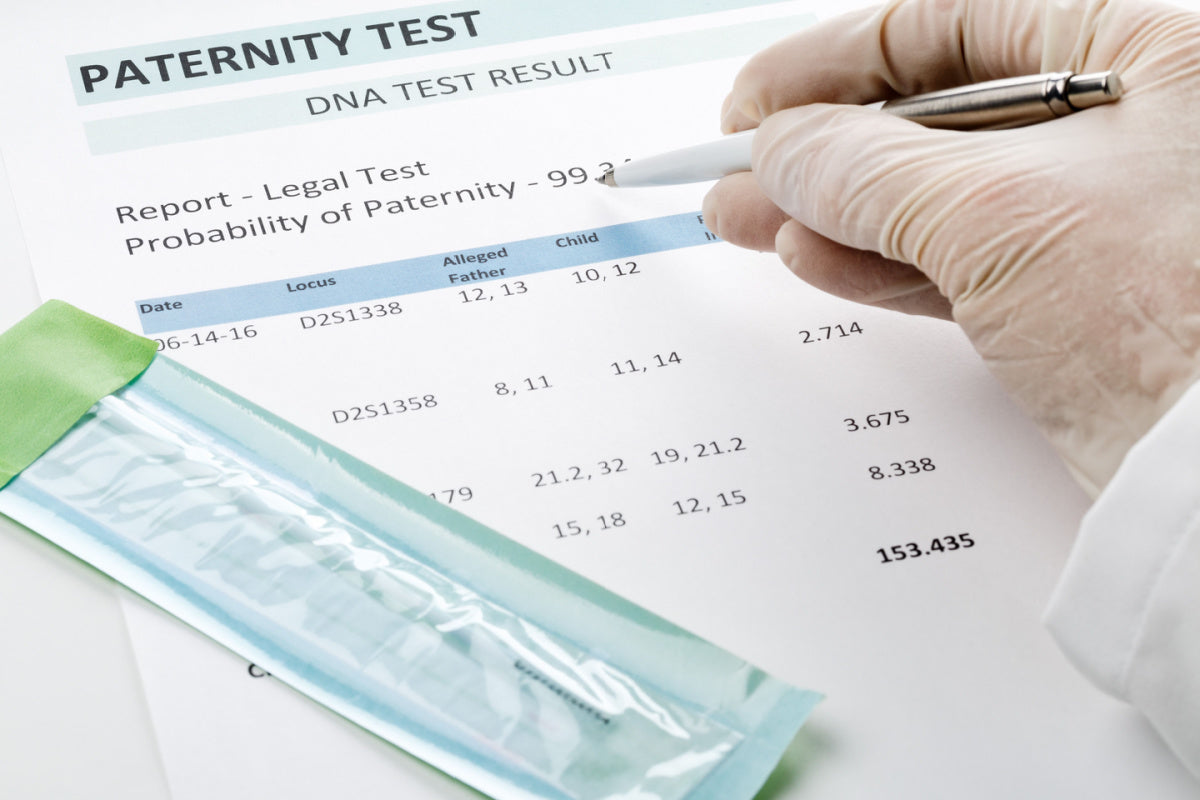Non-Invasive Prenatal Paternity Test
Non-Invasive Prenatal Paternity Test
Did you know paternity testing while pregnant is possible, as early as 8 weeks’ gestation? Paternity questions during pregnancy can be stressful. Fortunately, there’s a solution that can give you peace of mind before your baby’s born and it’s completely safe.
Rapid Results DNA + Drug Testing's Non-Invasive Prenatal Paternity Test can be used to determine the biological father of a child before the child is born.
It requires a blood sample from the mother and DNA from the alleged father. The fetal DNA is then separated from the mother’s DNA to create a DNA profile for the fetus.
The DNA profile of the fetus is then tested against the alleged father’s DNA profile. This test can be performed at 8 weeks of pregnancy or later.
Rapid Results DNA + Drug Testing's Non-Invasive Prenatal Paternity Test gives you accurate paternity answers without any risk to the baby or to you.
Included in the paternity test results is the baby's gender.
FREQUENTLY ASKED QUESTIONS
A non-invasive prenatal paternity test is a way to determine who the father is before the baby is born.
While the mom is pregnant, the DNA profile of the baby is determined from free-floating fetal cells found in the mom’s blood sample.
The baby’s profile is compared to the DNA profile of the man tested.
A report is then generated to show if the man tested is or is not the biological father.
A prenatal paternity test uses cell-free DNA from the developing fetus floats freely in the bloodstream of the pregnant mother.
This DNA can be found as early as the 8th week of pregnancy.
The fetus’ DNA and is compared to the profile to the DNA profile of the possible father.
Non-Invasive prenatal paternity is performed to determine paternity using cell-free circulating fetal DNA isolated from the plasma of the maternal blood sample.
This sample contains a mixture of maternal and fetal DNA.
DNA is also isolated from nucleated cells in the samples from the mother and alleged father.
Genetic analysis will be performed at more than 2500 SNP (Single Nucleotide Polymorphism) loci and a probability of paternity will be generated.
Until recently, the only way to test for paternity while pregnant was to collect amniotic fluid via a needle, which is an “invasive” procedure that presents a risk to the baby.
“Non-invasive” means there is no need to intrude in the baby’s safe environment to test for paternity.
Now only a blood sample from the mom and a DNA sample from the father is needed to preform the test.
No, a previous pregnancy will not affect the outcome of a non-invasive prenatal paternity test.
Once a child is born, the cell-free fetal DNA disappears from the mother’s bloodstream within hours; therefore previous pregnancies will not interfere with a current prenatal paternity test.
Non-invasive prenatal paternity testing is the most accurate method available for determining paternity during pregnancy.
Prenatal Paternity testing method captures and analyzes more than 13,000 SNPs from the alleged father, mother and fetus.
This data is subjected to advance bioinformatics analysis to provide results of paternity with non-paternal exclusive rate of more than 99.99%.
Rapid Results DNA + Drug Testing's partner laboratories maintains the confidentiality of our clients and never disclose personal information or test results without prior client consent.
We ensure the highest level of protection of our clients’ privacy and therefore we follow a strict confidentiality policy.
We will not disclose your data to anyone without your approval.
We always act accordingly to your instructions concerning communication with you or other individuals involved in your DNA test.
Couldn't load pickup availability




